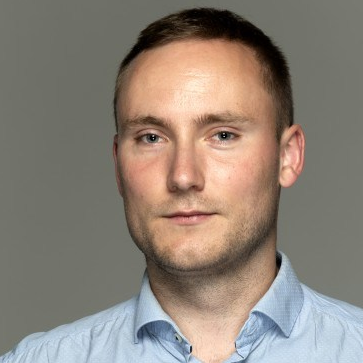BERLIN — As a company rooted in Nazi Germany, German car manufacturer Volkswagen might be expected to have a somewhat more sensitive approach to ethics than its competitors.
But Volkswagen has acquired a reputation in recent years for pursuing practices condemned as unethical by authorities and critics. Its ex-CEO currently faces a prison sentence over his involvement in a scandal over cheating on U.S. emissions tests.
Now, one of his successors, Herbert Diess, has sparked new outrage after he said that he was “not aware” of China’s treatment of Uighurs in the region of Xinjiang, even though his own company has helped to build a factory there, funded by a joint venture.
China has conducted a sweeping campaign to suppress Uighur identity in the region of Xinjiang in recent years, which has also included putting further restrictions on the practice of Islam. As many as 1 million Uighurs, besides members of other minority groups, are believed to be held without charges in internment camps. The camps have marked an escalation in tensions that have existed for decades between the staunchly secular Chinese government and Uighurs.
In the early stages, the Chinese government initially denied that the camps existed. Last year, officials changed course and began to acknowledge their existence, but said that their purpose was “de-extremism education” and the creation of jobs. “As a result of the vocational education and training, the social environment of Xinjiang has seen notable changes, with a healthy atmosphere on the rise and improper practices declining,” said Shohrat Zakir, the No. 2 Xinjiang official, last October. Beijing has also tried to attract Western companies like Volkswagen to the region.
A spokesman for Volkswagen backtracked in a statement to The Washington Post on Wednesday, saying that the company “is aware” of the treatment of Uighurs in Xinjiang and has taken active steps to address the situation. Those efforts, the spokesman said, have been credited as positive examples by members of the Uighur community and German politicians.
“For the whole Volkswagen Group, respecting human rights is one of the fundamental basic principles for all business relationships,” a statement read.
The statement contradicted the company’s CEO, who had told the BBC earlier when asked about the treatment of Uighurs: “I can’t judge this, sorry. . . . I don’t know what you’re referring to.”
It was the second time this year that the CEO of a company with a history deeply intertwined with Nazi Germany triggered criticism over comments that bore at least some similarities to Nazi-era rhetoric or that era’s widespread silence on mass detention and internment, which resulted in the Holocaust. Earlier in March, Diess had to apologize after using the phrase “EBIT macht frei” (EBIT, or earnings before interest and taxes, sets you free), which echoed the slogan “Arbeit macht frei” (Work sets you free) that appeared above the entrance to the Auschwitz concentration camp. The Volkswagen CEO stressed that the similarity was accidental.
His most recent China-related remarks to the BBC are likely to be cited by human rights groups as an extreme example of a Western corporation’s willingness to look the other way when it comes to alleged Chinese human rights abuses.
Adam Turan, an Uighur Muslim living in self-imposed exile in Australia, told The Washington Post on Wednesday, “I think he knew what was going on.”
To Turan, the issue is deeply personal. His 80-year-old father died only weeks after being released from an internment camp in Xinjiang last fall. Turan blames the death on his father’s treatment by Chinese authorities.
Turan also said that workers in many Xinjiang-based factories have faced exploitation.
Volkswagen said it employs Uighurs in its factories and has a minority quota of 25 percent, but it denied that its workers are being exploited.
“We hire our employees based on merit, regardless of their gender, age, religious beliefs and ethnicity. Everyone has the same chance to apply for a job. No one is excluded. Our Xin Jiang plant applies the same principle,” the company said in a statement.
Besides voicing concerns over Western factories in the region, human rights critics have called out Internet giants such as Google for allegedly contributing indirectly to Beijing’s efforts to monitor Uighurs. While protests have resulted in apologies and decisions to pull out in some cases, Volkswagen’s more dismissive response to those concerns is not an isolated incident.
Researchers also argue that leaders of European Union countries have encouraged corporations’ silence on Chinese human rights by urging China to provide more market access and dropping some of their criticism of Beijing in return.
“Political elites in the E.U. and its close neighbors have started to embrace Chinese rhetoric and interests, including where they contradict national or European interests,” Thorsten Benner, Jan Gaspers, Mareike Ohlberg, Lucrezia Poggetti and Kristin Shi-Kupfer, wrote in a study released last year. Two Berlin-based think tanks, the Global Public Policy Institute and the Mercator Institute for China Studies, financed the study.
China’s strategy to persuade leaders to put economic interests over moral concerns appears to have worked: The Volkswagen CEO’s controversial remarks went largely unnoticed in Germany this week, so far triggering only little domestic backlash.
More on WorldViews:
Chinese woman’s tearful protest on Mercedes hood goes viral — and gets results
Following the Indian election? Receive the latest updates from The Post on WhatsApp

